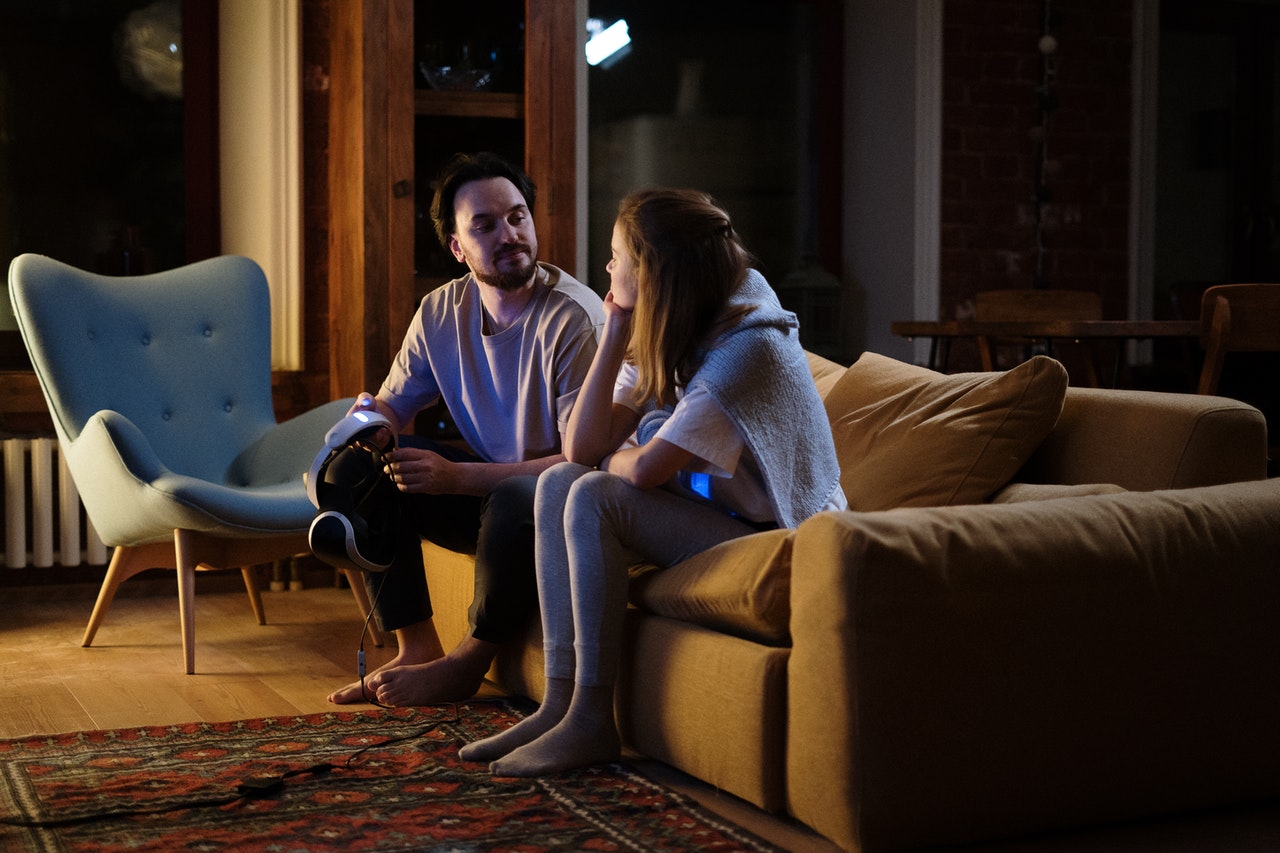Many of us feel complicated emotions during these trying times, feelings that may be outside our awareness but cause us to be easily triggered and emotionally reactive in our relationships with our partners. Higher stress levels and worries of the health and economic crises can make us more likely to snap and less capable of keeping our cool in conflict.
I’ve been working with individuals and couples in my therapy practice for over 20 years and have developed some tools to help people become more mindful and present with one another, including when tensions are high.
If you find yourself feeling stressed out, tense, or angry at your partner, try using this mindfulness process to slow down your emotional response and tune in to what your partner is telling you. Often when we’re in conflict with our partners, we’re not really able to clearly see their experience as our own unprocessed feelings are coloring our vision. But, when we can slow down the spin of our own emotions, we have a better chance of staying centered and balanced, and can more easily navigate the bumps that arise.
Throughout the day, as you interact with your partner, whether you feel loving towards them or annoyed, do this:
Try giving your partner your full attention. Let them express themselves without interruption. Put judgment aside and let yourself get curious. Listen to what they are saying but also to the feelings beneath the words. As your partner is talking, tune into your body and try to sense what they’re feeling.
Our ability to be able to feel what another is feeling may be due, in part, to “mirror neurons,” a type of brain cell that may enable us to understand the actions, intentions, and emotions of another person. As their name implies, mirror neurons apparently get activated both when we experience an emotion ourselves as well as when we witness someone else experiencing an emotion. So, when we see our partners feeling sad, angry, happy, or afraid, our mirror neurons light up, and we feel similarly. We resonate with their emotional experience, and we mirror them, or feel what they are feeling.
Pay attention to your partner’s nonverbal cues (facial expressions, tone of voice, body language). Notice what happens inside you when you do. Notice what you feel in your body. Let yourself make eye contact with your partner, even for brief moments. Notice what you see in their eyes. Notice what happens for you emotionally when you do.
With a felt sense of your partner’s emotional experience, consider why they’re feeling the way they’re feeling. Try to imagine what it would be like to be them. Put yourself aside and consider their perspective. Notice how you then feel toward your partner. How are you inclined to respond to what’s happening? What is your inner sense of what would be the best thing to do for both of you?
If you’re having a hard time connecting with your partner’s emotional experience, try picturing them as their younger self. See that child’s face in your mind’s eye. Look into your partner’s eyes and notice what happens inside of you. Notice what happens in your body. How do you feel toward that child? How does that make you feel toward your partner? How do you feel inclined to respond?
Then, if you’re so inclined, share your understanding of your partner’s emotional experience with them You might say, “I’m getting the sense that you’re feeling stressed out.” And then ask for feedback, “Did I get that right?” See if it rings true for them. If it does, notice how your partner responds emotionally to being seen in this way, to having their experience reflected back to them. Notice how that makes you feel.
If your understanding of their feelings wasn’t quite accurate, allow yourself to take in the feedback with curiosity and not with resentment at being corrected or devastated for being wrong. If your sense of them does not quite resonate in this moment, ask your partner for clarification and ask them to help you better understand their experience. Your partner will likely appreciate your interest and care, and your wish to really know and understand her or him.
Both of you can work on these skills of empathy, even as tensions and uncertainty are high. When we let go of reactions that are triggered by old wounds, assumptions, misunderstandings, or plain old stress, we can get closer to our partners and deepen our relationships. Now, more than ever, we need to bridge the gap that separates us from one another.



